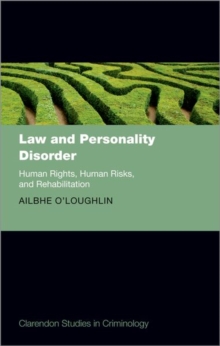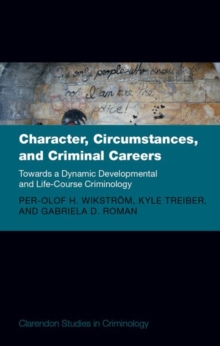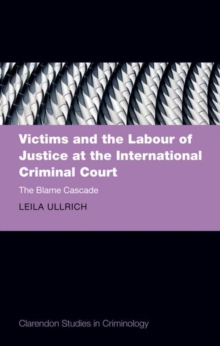
Advocates of Humanity : Human Rights NGOs in International Criminal Justice Hardback
by Kjersti (Postdoctoral Reseracher, Postdoctoral Reseracher, University of Oslo) Lohne
Part of the Clarendon Studies in Criminology series
Hardback
Description
Advocates of Humanity offers an analysis of international criminal justice from the perspective of sociology of punishment by exploring the role of human rights organizations in their mobilization for global justice through the International Criminal Court (ICC).
Based on multi-sited ethnography, primarily in The Hague and Uganda, the author approaches the transnational networks of NGOs advocating for the ICC as an ethnographic object.
A central objective is to explore how connections are made, and how forces and imaginations of global criminal justice travel.
By analyzing how international criminal justice is arranged spatially, and as such expresses social, political, and cultural relations of power, Advocates of Humanity shows how international criminal justice is situated in particular spaces, networks, and actors, and how they structure the imaginations of justice circulating in the field.
From a sociology of punishment perspective, it compares the 'penal imaginations' of domestic and international criminal justice, and considers the particularly central role of victims as a universalized symbol of humanity for the legitimacy of international criminal justice.
With clear global asymmetries emerging from the work, Advocates of Humanity provides descriptive as well as explanatory understandings of criminal punishment 'gone global', analyzing its social causation while examining its cultural meanings, particularly as regards its role as an expression of 'the international' will to punish.
To whom is it meaningful, and why?
Information
-
Available to Order - This title is available to order, with delivery expected within 2 weeks
- Format:Hardback
- Pages:286 pages
- Publisher:Oxford University Press
- Publication Date:05/12/2019
- Category:
- ISBN:9780198818748
Information
-
Available to Order - This title is available to order, with delivery expected within 2 weeks
- Format:Hardback
- Pages:286 pages
- Publisher:Oxford University Press
- Publication Date:05/12/2019
- Category:
- ISBN:9780198818748










